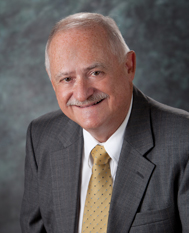President Trump fulfilled a campaign promise by signing an executive order formally withdrawing from the Trans-Pacific Partnership (TPP). The pact was already dead-on-arrival given the fact that both Mr. Trump and Mrs. Clinton had campaigned against it. A recent poll reported in the Wall Street Journal showed that voters of both parties – especially Republicans – are less likely to see trade agreements as favorable to the United States.
The TPP certainly had its flaws including many carve-outs to placate special interests in several of the 12 nations involved. Nonetheless, many economists supported it.
Formal withdrawal from the TPP marks a radical change in direction for the United States. It has been nearly 90 years since the Smoot-Hawley Tariff was passed. The argument then as now was that American jobs were being lost due to international competition. Smoot-Hawley increased tariff rates from 20% to 30% on agricultural products. Tariffs were raised on 887 items. Europe and Canada quickly retaliated wiping out many farmers in the Western United States and bankrupting Western banks further weakening a sinking economy. It is almost certain that the Smoot-Hawley Tariff all by itself would have induced a recession. It certainly contributed to making the Great Depression longer and more painful.
Since the end of World War II, the United States has championed freer trade and open markets. The United States led the creation in 1947 of the General Agreement of Trade and Tariffs (GATT) that was signed by 23 countries. In 1995, The United States helped lead the establishment of GATT’s successor – the World Trade Organization (WTO) which today has over 160 member nations.
But, it is now 2017. People have many serious concerns about trade that need to be addressed. These concerns never received the attention they deserved during the campaigns of either candidate.
- Is trade a job killer for the United States?
- Should we worry about bilateral trade deficits with nations like China?
- Has NAFTA done more harm than good?
- Does free trade help or hurt poor people?
Professor Schug will present a one-time lecture, “Economists Analyze the President’s New Policies,” on Tuesday, March 21 from 4:30 – 6 p.m.







